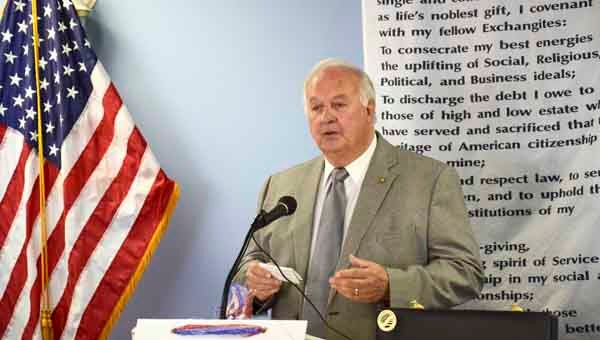Holley visits Republican Women
Published 11:45 pm Wednesday, March 26, 2014
Troy Republican Women welcomed two guest speakers to their meeting Wednesday. State Senator Jimmy Holley and Public Commissioner Jeremy Oden spoke and fielded questions from a full house at the American Legion.
In 2015, Pike County will join the district Holley currently represents. District 31 will also include Coffee, Covington and Dale counties.
Pike may be new to his district, but the county is not new to Holley.
“This is a second home to me,” said the Elba resident.
Holley said the next election was critical because Republicans need to remain the “super majority.”
“A super majority gives us the ability to stop a debate and vote when others think they’ve got a filibuster,” Holley said. “If you were to flip three of the Senate seats, it would eliminate the super majority.”
Holley fielded questions about common core, funding roads and Obamacare.
“I’ve always felt like the common core is not all bad,” he said. “We want to slow down and take our breath and see if there’s not something better out there.”
Governor Robert Bentley appointed Jeremy Oden to fill a vacancy on the Public Service Commission in 2012. Oden is currently running for a full term as Alabama Public Service Commission place 1.
“The first thing I learned is nobody knows what that is,” he said. “The biggest thing we do is, of course, we regulate the three largest utilities in the state.”
Oden said the utilities had monopolies in their areas and his job was to monitor the rates and keep them from price gouging.
The PSC is also in charge of safety aspects of railroads and gas pipelines.
Oden voiced concern that President Barack Obama might try to take over energy in the same manner as he has tried to overhaul health care.
“What has happened is we have a president that is totally out of control and I don’t mind telling you that he has put together more presidential orders than any other,” Oden said.
Alabama has four backbones of energy: coal, gas, hydro and nuclear. Oden said he wanted to keep the production of energy in the state as cheap as possible because it attracts new business.
“There’s a correlation between energy, jobs and family,” he said.










